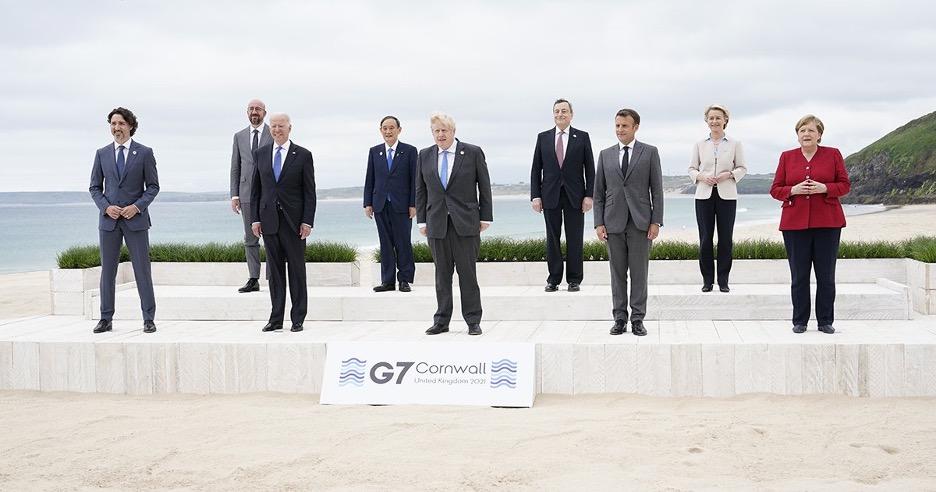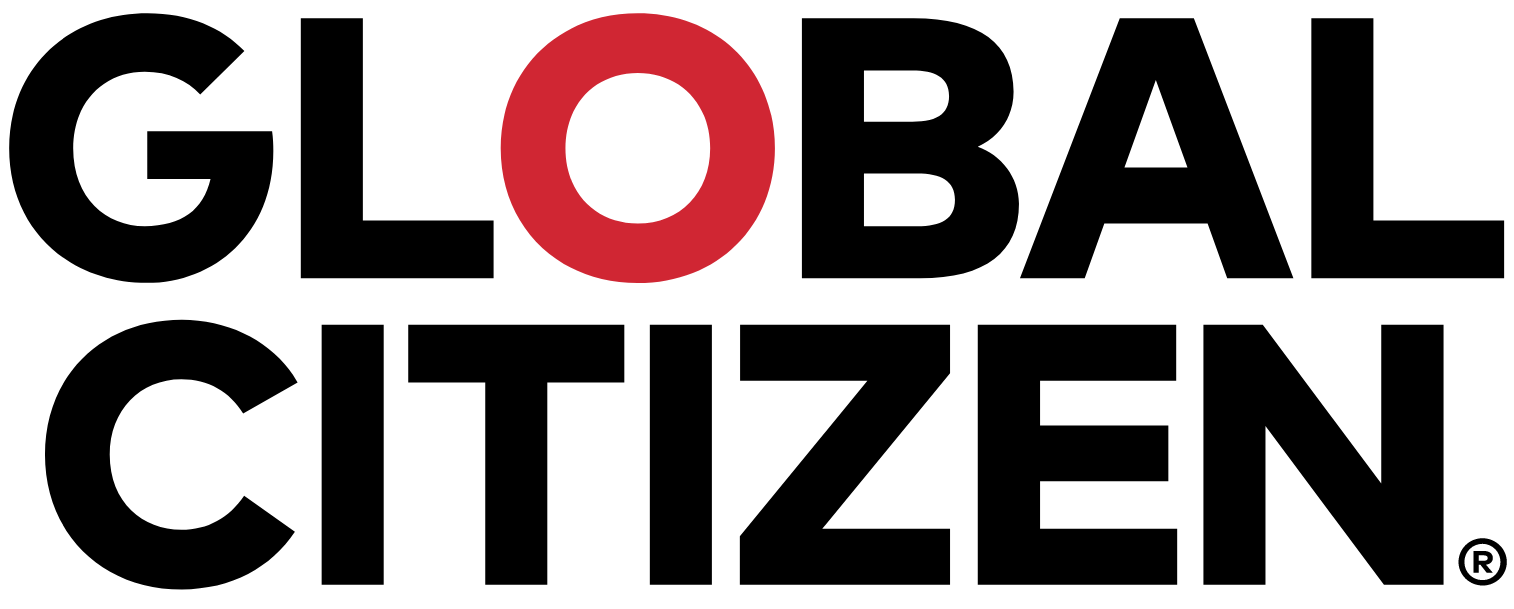The G7 Summit 2022 Is Coming. Here's Why All Global Citizens Should Be Paying Attention
G7 countries are economic, political heavyweights with the power to tackle urgent global issues

By Joe McCarthy
If you look back at past G7 Summit agendas, you’ll see many of the same themes: reducing inequality, promoting women’s equality, and advancing global security among them.
This year, the to-do list for the leaders of seven of the world’s economic and political heavyweights is long — from ending the COVID-19 pandemic, to averting an impending global food crisis, to taking meaningful action on climate change.
While the Group of 7, known as G7, doesn’t have the same power to enact global policy as organizations like the United Nations, it includes countries that have outsized global influence — Canada, France, Germany, Italy, Japan, the UK, and the United States, along with representatives from the European Union, which is also invited to all G7 meetings with observer status.
Humanitarian groups follow the meetings closely because their outcomes have the ability to affect overseas development aid, the fight against global poverty, and investment in climate action, among other things.
This year’s meeting, which will be held at Schloss Elmau in the Bavarian Alps in Germany, from June 26-28, is particularly important because, to put it frankly, the world has a lot of pressing challenges to address right now: climate change; Russia’s war in Ukraine and the impending global food crisis that could come as a result; the ongoing COVID-19 pandemic, to name a few — with all of these crises pushing increasing numbers of people into extreme poverty.
So let’s take a look at what the G7 is and how it came about; what the Leaders’ Summit has to focus on this year; and how we can all use our voices to urge the G7 leaders to use this opportunity to drive real, positive change.
How and Why Did the G7 Form?
In the aftermath of the 1973 oil crisis, finance ministers from six of the world’s leading economies — France, Germany, Italy, Japan, the UK, and the US — formalized talks they had been having about the state of the global economy and international politics.
The leaders had just witnessed how disruptions to a crucial global commodity — oil — could lead to widespread job losses, surging inflation, and collapsing trade.
It was a domino effect they wanted to avoid in the future.
So they decided to get on the same page — and formally called their gathering the “Group of 6” or G6. Over the course of a few days in Rambouillet, France, in 1975, they discussed everything from multilateral trade to the role of democracies to unemployment.
Since then, the group has continued to meet regularly — including at the annual Leaders’ Summit — and its membership has evolved over time. Canada was added in 1976 to make it the G7, followed by Russia in 1994, making it the G8. Russia was then suspended from the group after it annexed Crimea in 2014, and the group rebounded to G7, with additional representatives from the European Union.
What Can the G7 Summit Do?
The G7 is a formidable global policy forum. The group includes seven of the nine largest economies in the world, seven of the 15 countries with the most per capita wealth, seven of the 10 leading exporters, and seven of the 10 leading donors to the United Nations.
Even without the G7, these countries would have tremendous power to shape the priorities of the global economy. But the G7 amplifies their individual influence and acts as a stabilizing force amid the tumult of domestic transitions of power. G7 members regularly invite guest leaders to attend and have supported an offshoot called the G20 to allow more of the world’s countries a chance to align on economic issues.
The presidency of the G7 rotates annually. Since the group is merely an informal association and not an institutionalized organization, the presiding country — Germany for this year — bears a special responsibility and can significantly influence the agenda.
Over the years, the G7 has confronted the Chernobyl nuclear meltdown, eliminated debt for low-income countries, mobilized funds for malaria and HIV/AIDS, and promoted issues such as gender equality. But the group has also been criticized for perpetuating global inequality by guarding the economic status quo — the G7 represents just 10% of the global population — and failing to meaningfully address global crises such as climate change. You can read more about what happened at last year’s Leaders’ Summit in Cornwall, in the UK, in our explainer (spoiler: it wasn’t enough).
While the G7 does not directly enact laws or rules, the members release a document each year, penned by the host country, that’s meant to shape and influence global policy. However, in the past it has not always been the case that the many words in the final declarations of the G7 meetings were followed by concrete action.
What’s on the Agenda This Year?
This year, Germany holds the G7 presidency and, only shortly after taking office in December 2021, the new German government now has the opportunity to work for global justice and to tackle the world’s most pressing challenges.
Germany’s Chancellor Olaf Scholz will be leading this year’s summit which, against the backdrop of the Bavarian mountains, will particularly focus on the war in Ukraine and its consequences, including an impending global food crisis; the climate crisis; the ongoing fight against the COVID 19 pandemic; and economic cooperation.
Although the Leaders’ Summit in Elmau is the highlight, the G7 presidency extends over the entire year.
Both before and after the heads of state and government meet in June, important meetings of the respective ministers take place on the topics of finance, foreign policy, climate, health, and development, where joint positions and concrete measures are negotiated.
Why This G7 Summit Is So important
Wars and violent conflicts, the COVID-19 pandemic, and climate change — the world is currently experiencing multiple crises that are reversing the significant progress already made in recent decades on the road to ending extreme poverty.
The World Bank estimates that nearly 100 million people have been pushed into extreme poverty by the COVID-19 pandemic. According to the World Food Programme, 45 million people are on the brink of starvation. And the number of people globally who have been displaced from their homes just surpassed 100 million for the first time ever, a “staggering” milestone according to UNHCR, the UN Refugee Agency.
The need to act now is greater than ever. Because amid all the crises, we must not forget that a just, sustainable, and healthy future for all people, everywhere, is possible.
The roadmap for achieving this are the United Nations Global Goals — 17 goals that work together to end extreme poverty and its systemic causes, from climate change to gender inequality, from health inequity to hunger.
Amid the ongoing global crises, we can’t let leaders lose sight of these goals — because what’s needed now is global unity, cooperation, and action to achieve them.
How You Can Take Action Now to Help
At the G7 Summit this year, concrete measures must be taken to end extreme poverty now and everywhere. In line with our “End Extreme Poverty NOW — Our Future Can’t Wait” campaign, we’re urging G7 leaders to do the following things to Break Systemic Barriers, Take Climate Action, and Empower Girls, and you can join us in taking action to help make sure leaders hear the voices of Global Citizens around the world.
- Leaders must mobilize funds to close the global gap between rich and poor countries, including by allocating 0.7% of gross national income (GNI) to development cooperation and humanitarian aid.
- Stop the COVID-19 pandemic, future pandemics, and other diseases, and strengthen health systems everywhere — including by suspending patents on COVID-19 vaccines and funding the Access to COVID-19 Tools Accelerator (ACT-A), including the COVAX vaccine initiative.
- Protect the climate with comprehensive actions implemented as soon as possible, and limit global warming to a maximum of 1.5°C — including by delivering on the promise (made in 2009 and still not yet reached) to provide $100 billion annually for climate mitigation and adaptation in low-income countries.
- Empowering young women and girls around the world — including by investing in girls’ access to health care, education, and nutrition, as well as for care and support services.
You can join us now by heading to our campaign pages for Break Systemic Barriers; Climate Action; and Empower Girls, and start taking action. Together, we can urge world leaders to hear our voices now and take the real, transformative action necessary to tackle the global challenges we’re currently facing and deliver a world that is fair, just, and equal for all.

